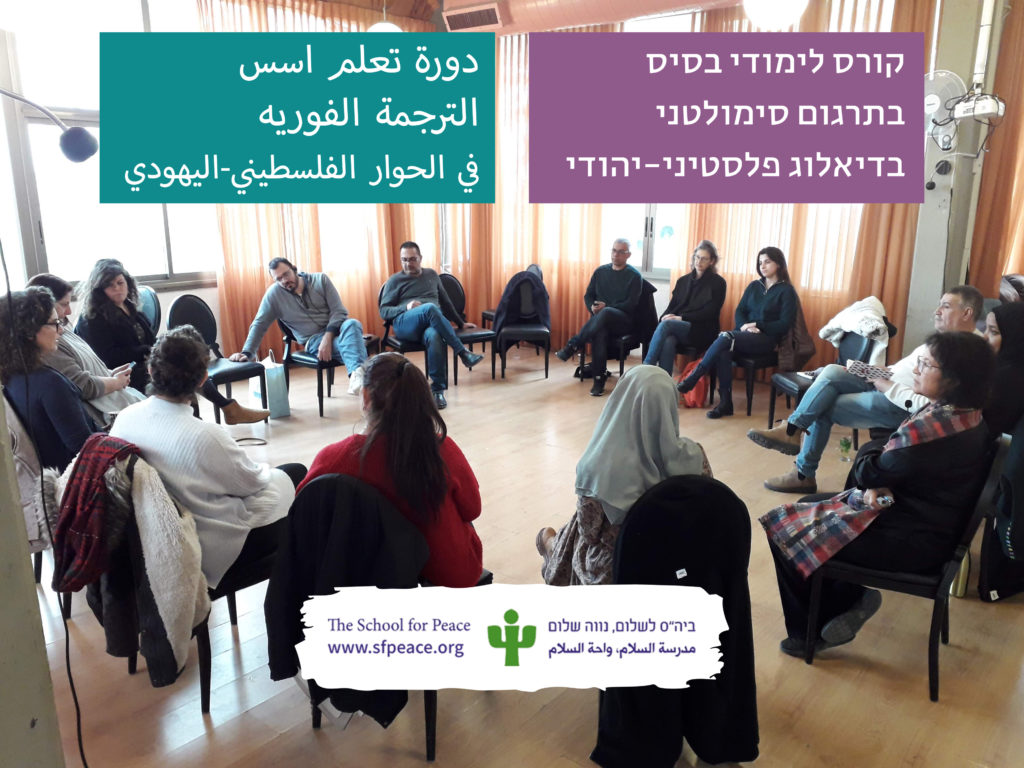Simultaneous Translators Training
We have come to believe that truly egalitarian dialogue between Jews and Palestinians, both in Israel and across borders, must be bi-lingual. It is essential that both sides have recourse to their native languages in order to guarantee authentic and accurate expression of national narratives.
Currently, mono-linguistic discussion allows for two options (since most Jews do not speak Arabic), neither of which is satisfactory: either Hebrew or English. The first marginalizes Palestinians, perpetuating the uneven power dynamic that dialogue attempts to ameliorate, while the second compromises both sides’ expressive capabilities, and often disproportionately limits Palestinians. As a result, Palestinians are implicitly shunted, even in sympathetic circles. Proficient simultaneous translators, who are masters of the dynamic nature of bi-lingual discussion, and the particular subtleties of the conflict, could help solve this problem.
Unfortunately, our own experience, as well as that of several of our collaborators in the field of political change in the context of the Jewish-Palestinian conflict, shows that there is a serious lack of such professionals, and practically no existing training platform. The SFP simultaneous translators training course sets out to fill this lacuna.
The course will take place between November 24th, 2022 and January 26th, 2023, and will consist of ten sessions, each spanning over four academic hours. We aim to recruit between 13-15 bi-lingual participants, which we will provide with the training they need to facilitate equal dialogue in SFP and other organizations’ activities. The course was designed as a practical workshop, focusing on cultivating the following aptitudes: switching back and forth between Hebrew and Arabic; expressing the heart of a speaker’s message rather than the literal translation of their words; and command of conflict-related vocabulary.
The first introductory session will present the course’s structure and logic, and allow participants to express expectations. In addition, Dr. Inbal Shuster will give a talk on the principles of translation. In the second session, we will further evaluate participants’ language skills beyond the initial screening, in order to tailor workshops to their abilities. The third session will focus on practical issues in translation. The rest of the meetings will be dedicated to practical exercises based on real-life dialogue situations on common subjects relevant to promoting social change, such as: education, society, nationality, environmentalism, and culture. These sessions will provide hands-on experience, and inculcate theoretical tools. The final session will consist of a presentation of participants’ skills in an open dialogue workshop.
Mr. Saleh Sawa’ed is the academic guide for the course. He is an accomplished translator with years of experience training translators, with two MA degrees in translation studies and Arabic literature from top Israeli Universities. He has translated many books, videos and recordings for organizations, and is a member of the Van Leer institute’s translation team, and a Maktoob project collaborator.

